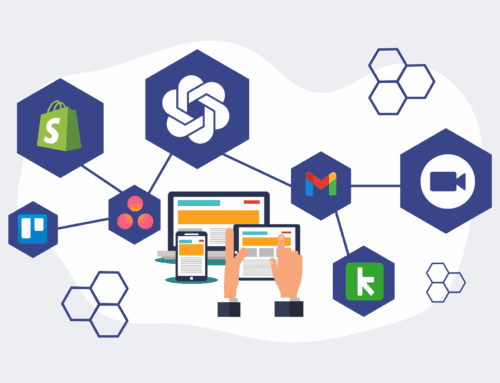The Role of Machine Learning in Modern ATS Platforms: Redefining Talent Acquisition
In today’s hyper-competitive talent landscape, businesses are constantly seeking an edge. The traditional Applicant Tracking System (ATS), while a staple in recruitment, often struggles to keep pace with the demands for efficiency, personalization, and data-driven insights. This is where the integration of Machine Learning (ML) becomes not just an advantage, but a strategic imperative. At 4Spot Consulting, we understand that merely having an ATS isn’t enough; it’s about transforming it into an intelligent, proactive partner in your talent acquisition strategy.
Beyond Basic Matching: The Evolution of ATS with Machine Learning
For years, ATS platforms primarily functioned as digital filing cabinets, collecting resumes and filtering candidates based on keyword matches. While useful, this approach was inherently reactive and prone to human bias and missed opportunities. The introduction of Machine Learning has dramatically shifted this paradigm. ML algorithms analyze vast datasets, learning patterns and correlations that human eyes simply cannot process at scale. This allows modern ATS platforms to move beyond rudimentary keyword searches to truly understand candidate qualifications, potential, and cultural fit, transforming the ATS from a passive record-keeper into an active intelligence hub.
Predictive Analytics: Anticipating Future Talent Needs
One of the most profound impacts of ML in ATS is its ability to power predictive analytics. This isn’t about guesswork; it’s about leveraging historical data to forecast future outcomes with remarkable accuracy. Imagine an ATS that can not only identify the best candidates for current openings but also predict future hiring needs based on business growth projections, attrition rates, and market trends. ML-driven predictive models can analyze performance data, tenure, and successful career paths within your organization to identify which candidate profiles are most likely to succeed and stay long-term. This proactive approach significantly reduces time-to-hire and improves the overall quality of new recruits, minimizing costly mis-hires.
Identifying High-Potential Candidates with Greater Accuracy
ML algorithms can analyze a wider array of candidate data points – beyond just keywords – including soft skills inferred from experience descriptions, project contributions, and even external data sources. By identifying complex patterns associated with high performers, these systems can surface candidates who might otherwise be overlooked by traditional, rule-based filtering. This enhances diversity by mitigating unconscious bias often present in manual screening, ensuring a broader and more qualified talent pool.
Reducing Time-to-Hire and Improving Quality
By automating the initial screening and evaluation process, ML dramatically accelerates the recruitment funnel. Recruiters spend less time sifting through irrelevant applications and more time engaging with truly promising candidates. This efficiency translates directly into a reduced time-to-hire, a critical metric in competitive industries. Moreover, the data-driven insights provided by ML lead to more informed hiring decisions, contributing to a higher quality of hire and stronger organizational performance.
Enhancing Candidate Experience with AI-Powered Personalization
In today’s talent market, the candidate experience is paramount. ML-powered ATS platforms can deliver a highly personalized and engaging journey, starting from the very first interaction.
Intelligent Chatbots and Automated Communication
ML-driven chatbots can provide instant answers to candidate queries, guide them through the application process, and even conduct initial screening interviews 24/7. This immediate response improves candidate satisfaction and reduces the workload on recruiting teams. Automated, personalized communication – from application confirmations to interview reminders – ensures candidates feel valued and informed throughout the process.
Personalized Job Recommendations
Based on a candidate’s profile, application history, and interactions, ML can offer highly relevant job recommendations, much like a streaming service suggests movies. This not only improves the chances of a successful match but also showcases the company as forward-thinking and attentive to individual aspirations, significantly enhancing engagement.
Streamlining Operations and Reducing Manual Burden
Perhaps the most immediate and tangible benefit of ML in ATS is its ability to automate repetitive, low-value tasks, freeing up recruiters and HR professionals to focus on strategic initiatives.
Automated Resume Parsing and Screening
Advanced ML algorithms can parse resumes with incredible accuracy, extracting relevant information from various formats and populating candidate profiles automatically. This eliminates manual data entry, reduces errors, and standardizes candidate data. Furthermore, ML can automatically screen candidates against specific job requirements, filtering out unqualified applicants at scale and presenting recruiters with a highly prioritized shortlist.
Optimizing Interview Scheduling and Feedback
While often seen as a logistical challenge, ML can optimize interview scheduling by identifying optimal times for both candidates and hiring managers, minimizing conflicts and delays. Post-interview, ML can analyze feedback data to identify patterns and potential biases, ensuring a more objective evaluation process. This not only saves significant administrative time but also improves the overall fairness and consistency of the hiring process.
The Future is Integrated: 4Spot Consulting’s Vision
At 4Spot Consulting, we believe that the true power of ML in ATS platforms is unleashed when they are seamlessly integrated into a broader ecosystem of automated business processes. An intelligent ATS, powered by ML, becomes a critical node in an OpsMesh™ strategy, connecting with CRMs like Keap, HRIS systems, and communication platforms. This end-to-end automation reduces human error, eliminates data silos, and ensures that talent acquisition is not an isolated function but a fully integrated, strategic component of your organization’s growth engine. We help companies like yours build these strategic blueprints, ensuring every automation leads to tangible ROI and saves you significant time.
Conclusion: The Strategic Imperative for Modern HR
The integration of Machine Learning into ATS platforms is no longer a futuristic concept; it is a present-day necessity for organizations aiming for peak efficiency, superior candidate experiences, and data-driven hiring outcomes. By embracing ML, businesses can transform their talent acquisition from a reactive, resource-intensive process into a proactive, intelligent, and strategic function. This shift not only saves significant operational costs but also positions your organization to attract and secure the best talent, driving sustainable growth in an ever-evolving market. Don’t let your ATS be just a system; let it be an intelligent partner.
If you would like to read more, we recommend this article: ATS Automation Consulting: The Strategic Blueprint for Next-Gen Talent Acquisition








